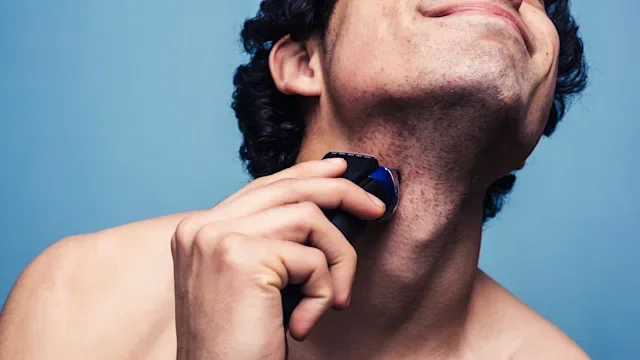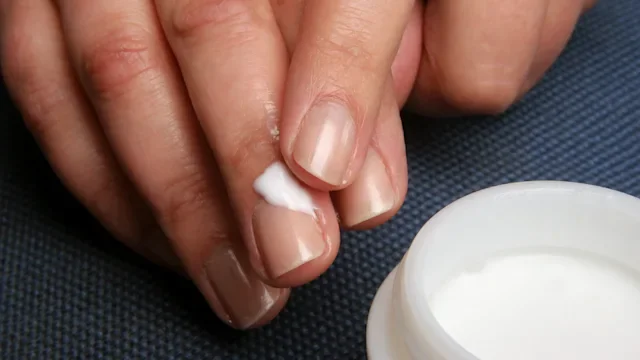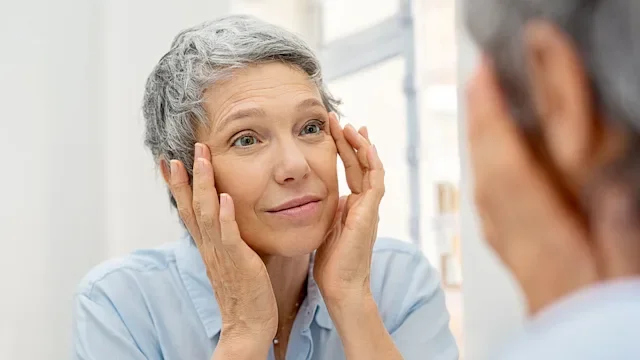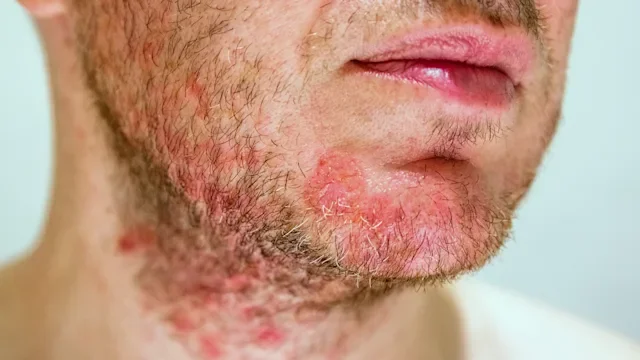Key takeaways:
Collagen is a naturally occurring protein in the body, responsible for the strength and structure of skin, bones, blood, and muscle.
But as we age, collagen regeneration slows down, causing skin to lose elasticity and hair and nails to become brittle, among other health risks.
Collagen supplements have become popular in the beauty industry for their potential benefits to skin and hair, but experts say more research is needed to determine whether they can restore a youthful appearance.
Collagen is the most abundant protein in the body, playing a major role in the strength and structure of skin, bones, blood, and muscle.
But as we age, collagen regeneration slows down. Old collagen breaks down, and it can be harder for your body to make more, leading to a loss of skin elasticity and hair changes. It may even affect bone and joint health.
To combat this loss, researchers have been studying the use of collagen supplements. Supplements are available in different forms, including powders, capsules, and liquids. Research has found limited benefits from collagen supplements for skin, bones, joints, and heart health.
Search and compare options
Yet collagen supplements are increasingly popular in the beauty industry, with many celebrities and social media influencers touting claims that they can improve skin elasticity, reduce wrinkles, and give you stronger nails and healthier hair.
Does taking collagen really work? Experts say more research is needed to assess the beauty benefits. We talked to three women who have been taking collagen to see if they’ve noticed any differences.
Her thin hair seems to be improving
Hannah Byrd, a 25-year-old construction estimator in Atlanta, first heard about collagen supplements from a friend.
“I was interested, because I have perpetually fine and thin hair, and my nails are always breaking,” Hannah says.

She started taking a pill form about 3 months ago. Her supplement also contains vitamin C and biotin — also as vitamin B7, another supplement commonly touted for hair growth.
“I’ve noticed I don’t have as much breakage in my hair, and it’s growing. For someone who used to go a year or more between haircuts because her hair didn’t grow enough to warrant it, it’s a Christmas miracle,” Hannah says. “The skin on my face does seem to be getting better. And I feel like some of the old acne scarring is starting to go away. However, that could be the retinol I use at night.”
Do collagen supplements really work? Experts say there isn’t enough research to say it’s worth your money.
Can some supplements cause acne? Yes, learn about which supplements can lead to acne breakouts.
Which kind of treatment helps which kind of acne? Read our complete guide to acne treatment.
Even if her results aren’t from collagen alone, Hannah says she’ll keep using it. She recommends it for others who have hair loss or want it to be thicker. “The only reason I’d ever stop is if it became more expensive or if it ever stopped working,” she says.
Other protein supplements gave her breakouts
Katie Young started taking collagen 3 years ago when she made the connection that the whey protein supplement she was using was giving her cystic acne but collagen did not.
“While collagen isn’t a complete protein, it is what I use in my daily protein shakes,” says Katie, who’s 32 and lives in Murrells Inlet, South Carolina. “This was recommended by my dietitian since it is said to also help with gut health.”
Read more like this
Explore these related articles, suggested for readers like you.

Katie adds a quarter scoop of chocolate Vital Proteins collagen powder to her shake every morning with almond milk, frozen fruit, and a peanut butter powder. “The chocolate flavor is delicious,” she says. “Even my husband requests daily shakes.”
She hasn’t noticed any of the beauty benefits touted on Instagram, but she continues to drink it “because it’s definitely a great sweet treat with added health benefits instead of grabbing a dessert.” But since she just had her first baby, Katie says she hopes the beauty claims are true. “I’m curious to see if it helps with postpartum hair loss,” she says.
She wanted something to ease her joint pain
About 2 years ago, Olivia Jackson was complaining to her mother-in-law that she had pain in her fingers.

“[My mother-in-law] mentioned that she started taking collagen, and her joint pain went away,” says Olivia, a 44-year-old writer in Atlanta. “I decided to give it a try.”
After 2 months of taking Collagen Peptides by Sports Research, Olivia says her joint pain was gone.
“I take one scoop a day with lukewarm water,” she says. “The taste is almost nonexistent, but the smell is something else. It’s not for everyone. When I drink it, I hold my breath and gulp it down.”
She’s not sure if she has noticed any differences in her skin, nails, or hair since starting the supplement, but she says she hopes the antiaging benefits are real.
“I don’t know if it’s improved my skin and if I look any younger. But I want to believe in that,” she says. “If I look at my pictures from 2 years ago, I do look the same and not older,” which could be, she says, because of a few pounds she gained recently and not the collagen. “The extra plumpness on my face adds some youth by smoothing out my wrinkles and making my cheeks less hollow.”
What does the doctor say?

Patricia Pinto-Garcia, MD, MPH
Senior Medical Editor
The body makes several forms of collagen. Collagen type 1 is a basic building block of skin, hair, nails, corneas, and joints (tendon and bones). Collagen type 1 also helps your body heal and repair wounds. Your body is constantly building new collagen and breaking down old collagen. But this process slows down as people get older. This can lead to changes you can see, like wrinkles, and changes you can feel, like joint pain.
So it’s no surprise that people have been looking for ways to support their body’s collagen levels. But it seems that simply offering your body more collagen isn’t going to do the trick. Oral and topical collagen supplements haven’t been shown to definitively help with any medical conditions or aesthetic concerns.
On the other hand, collagen supplements are generally safe. If you feel like collagen supplements help your concerns and you’ve gotten the OK from your healthcare team, you can keep taking them. But keep in mind that collagen supplements aren’t regulated by the FDA, so it’s important to purchase them from reputable sources.

Why trust our experts?





















